The METAVASIS Program: Second Workshop – June 2024
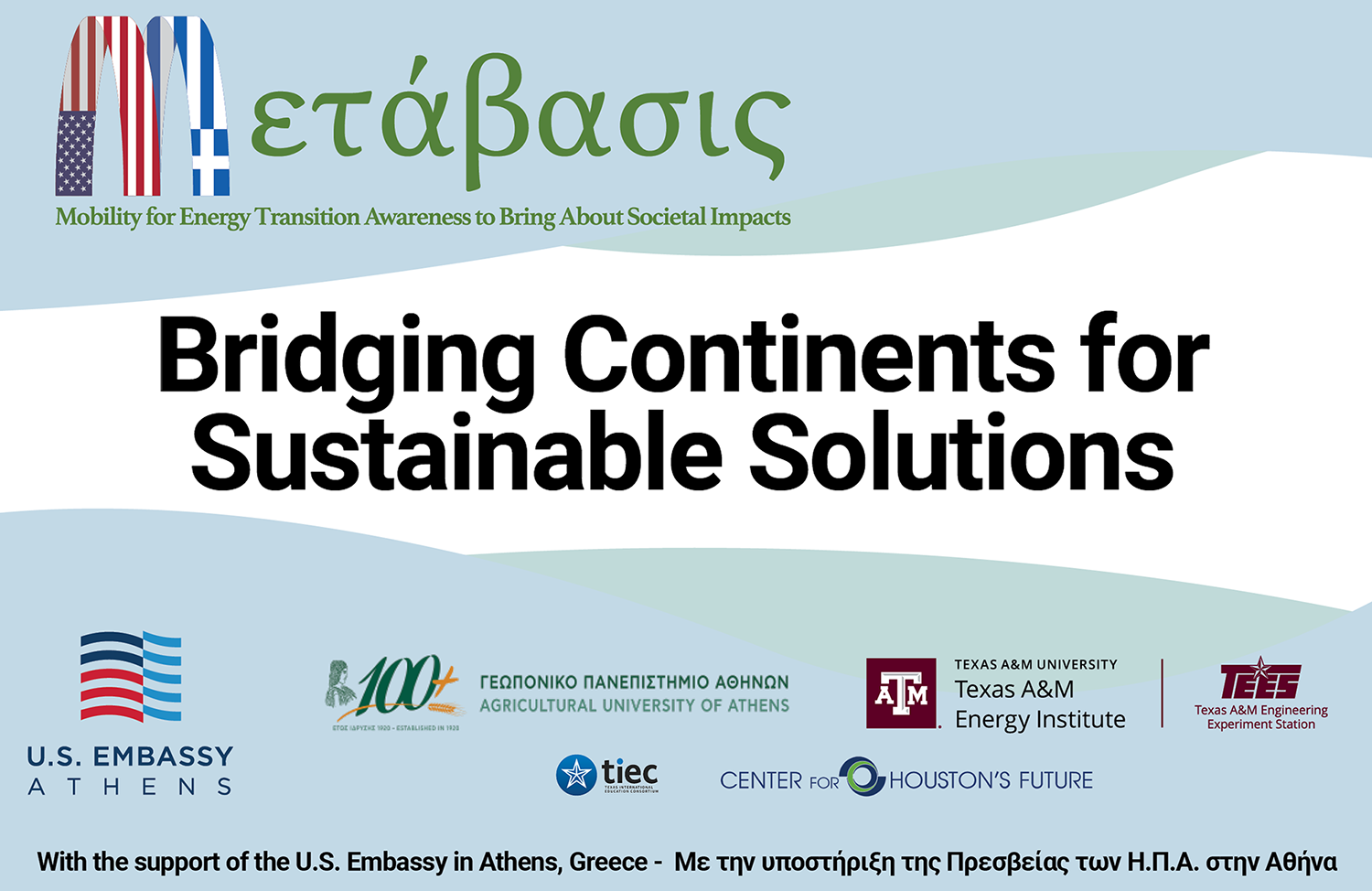
A pivotal step towards a greener tomorrow unfolded in Athens on June 20-21, 2024, as the Agricultural University of Athens hosted the METAVASIS Program Workshop, Bridging Continents for Sustainable Solutions. This event marked a significant milestone in the ongoing collaboration between Texas A&M University and its Greek counterpart.
High-level dignitaries, including the Agricultural University of Athens Rector, Prof. Spyridon Kintzios, and the U.S. Ambassador to Athens, Mr. George Tsunis, graced the occasion. Their presence underscored the importance of this transatlantic partnership. Dr. Konstantinos Pappas and Prof. George Papadakis shed light on the METAVASIS project’s remarkable achievements.
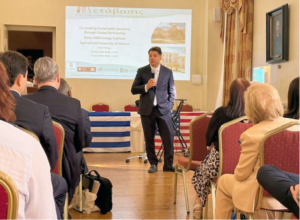
The workshop delved deep into critical issues, featuring insights from Dr. Odysseas-Ioannis Zoras, General Secretary of Higher Education, on Greece-U.S. educational cooperation. Dr. Stelios Bikos, Managing Director of the Energy Competence Center, and Mrs. Theodora Zacharias, Head of the Just Transition Management Authority. They presented Greece’s energy landscape and transition plans for the regions affected by the delignitization process. Mr. Markos Legkas, Head of European Programs and Innovation for the Region of Peloponnese emphasized the region’s role in sustainable development, particularly in the Megalopolis area.
Renowned scientists from Greece, Texas A&M University, and the Agricultural University of Athens contributed their expertise to discussions on strategic energy and climate planning, innovation, technology transfer, agriculture’s carbon footprint, and the impact of climate change on vulnerable communities.
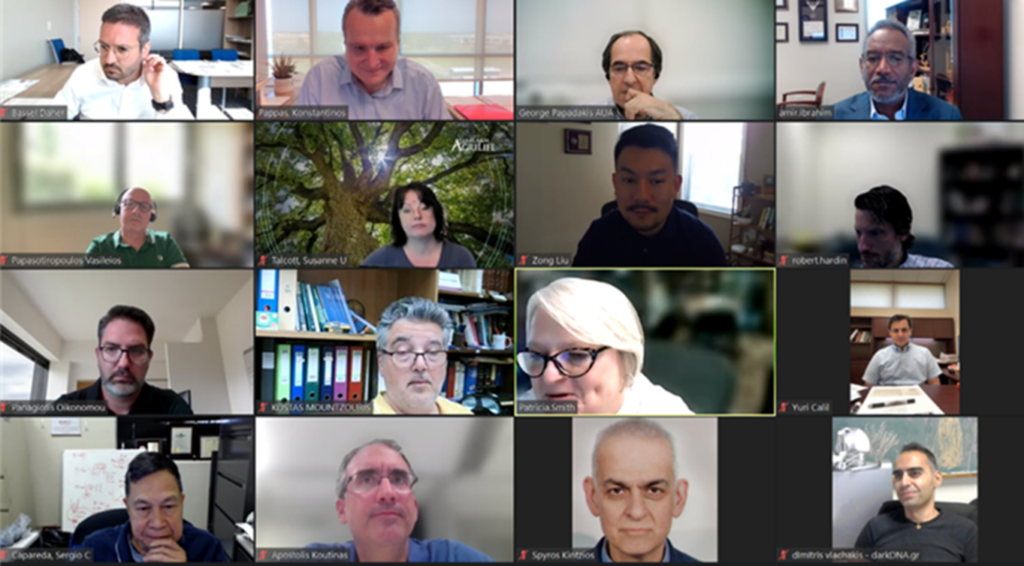
Student engagement was a highlight. Joint working groups tackled energy resources, climate change, microgrids, energy communities, green transportation, socioeconomic aspects of energy transitions, and renewable energy technologies. Their innovative ideas showcased the next generation’s potential in shaping a sustainable future.
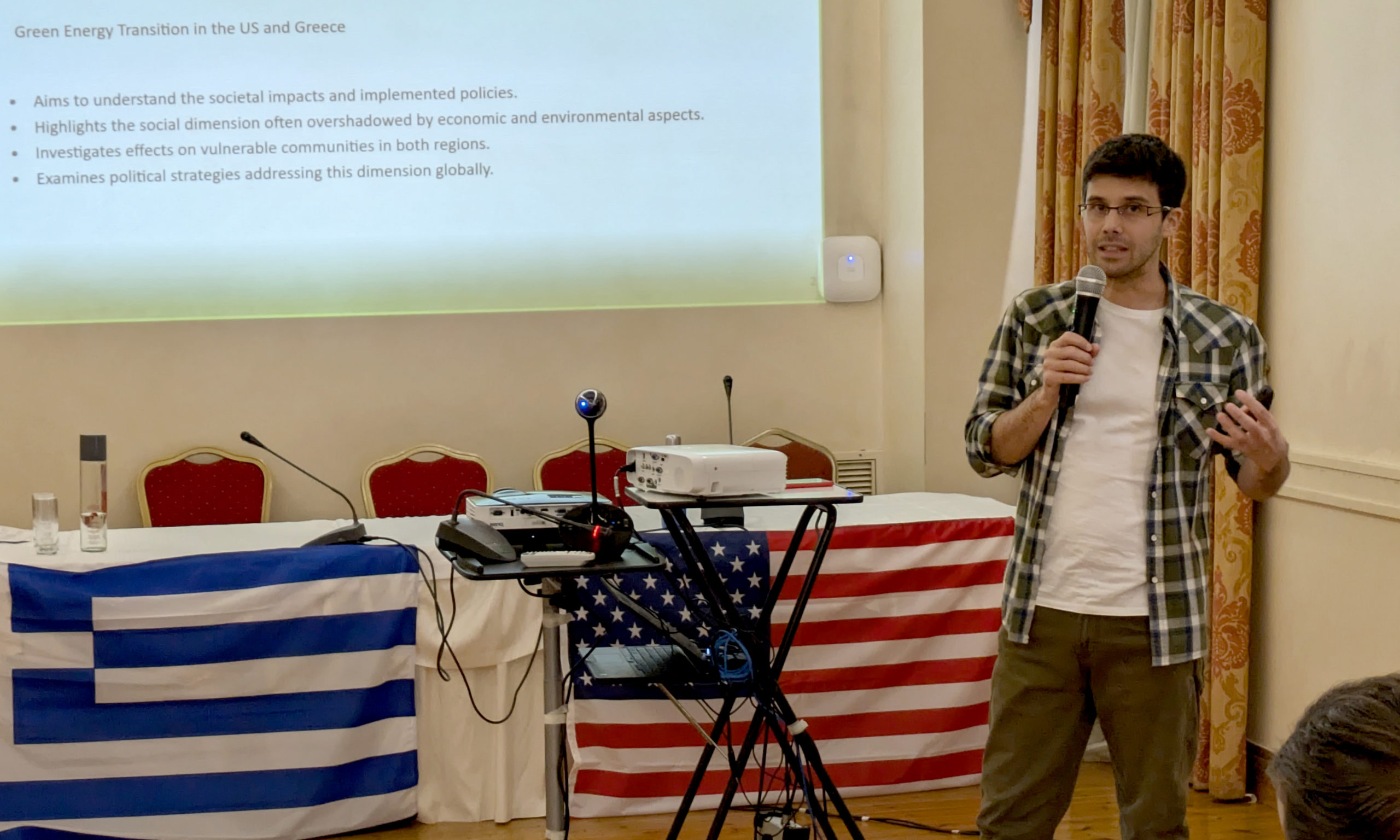



Simultaneously, a delegation from Texas A&M’s College of Agriculture and Life Sciences engaged in fruitful discussions with Greek counterparts, fostering collaboration and identifying potential research and educational partnerships. These interactions built upon the strong foundation established by the March 2024 agreement between the two universities.
The workshop culminated in the presentation of joint working groups’ proposals and the identification of key areas for joint projects, including:
- Plant Breeding (Amir Ibrahim and Vasileios Papasotiropoulos)
- Water and Food Security In Controlled Environments (Rabi Mohtar and Thomas Bartzanas)
- Water Management (Guy Fipps and Panagiotis Oikonomou)
- Hydrologic Modeling (Patricia Smith and Christos Karavitis)
- Big Data/AI in Agriculture (Robert Hardin, Spyros Fountas, and Dimitris Vlachakis)
- Bio-processing and Circular Economy from Food Waste (Sergio Capareda and Apostolis Koutinas)
- Bio Waste management and Reuse (Zong Liu and Kostas Mountzouris)
- Food Science and Nutrition (Susanne Talcott, Spyridon Kintzios, and Sophie Mavrikou)
- Economic Evaluation (Yuri Calil and Antonios Rezitis)
- NSF ACCELNET Energy transition (Bassel Daher, Konstantinos Pappas, and George Papadakis)
- Summer Course at the Greek Islands (Christos Karavitis)
- Educational partnerships for Internationalizing the Greek Educational Services to develop a Joint Post Graduate Study Program (Patricia Smith, Rabi H. Mohtar, Konstantinos Pappas, and Thomas Bartzanas).
- Joint Senior Capstone Experience (Rabi H. Mohtar and Thomas Bartzanas)
- Develop and submit a NSF Workshop proposal to host the AUA team to a meeting at TAMU early next year.
Professor Thomas Bartzanas, Vice-Rector for Research, Finance, and Development at the Agricultural University of Athens, and Professor Amir Ibrahim, Associate Dean for Research in the Texas A&M University College of Agriculture and Life Sciences, co-hosted the second day of the workshop. They both highlighted the fact that this landmark event has charted the course for an even deeper partnership between Texas A&M Universtiy and the Agricultural University of Athens and showcased the power of international collaboration in addressing complex global challenges. By bridging continents and sharing knowledge, we move closer to a sustainable future for all.
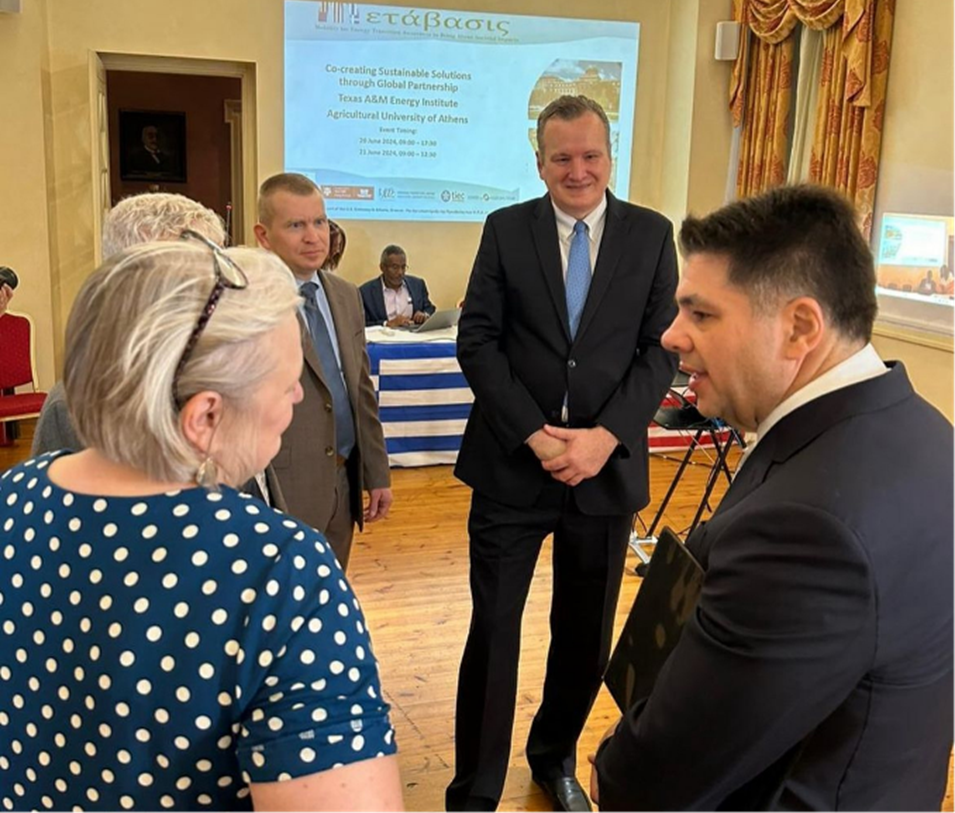
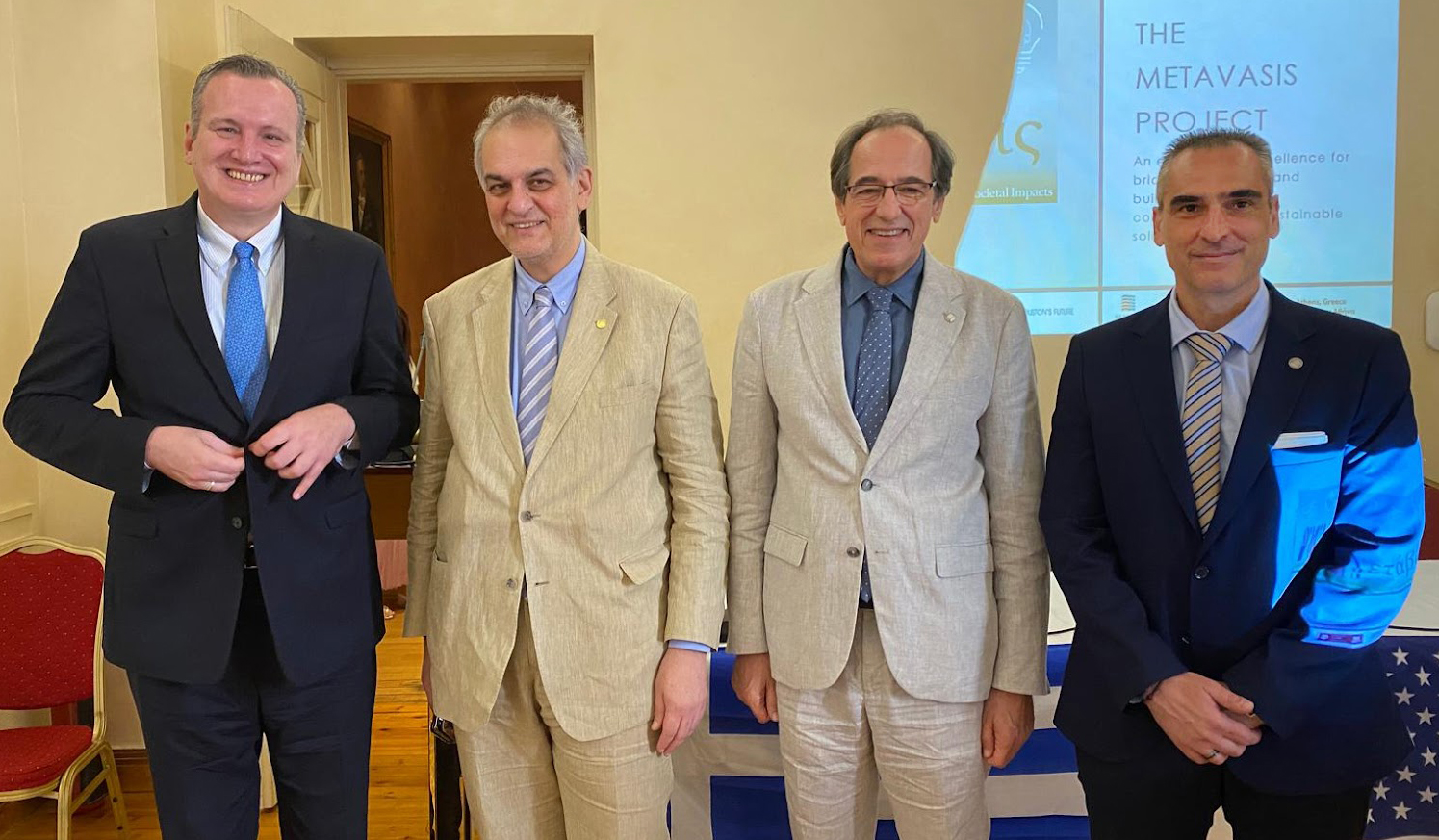
METAVASIS Program
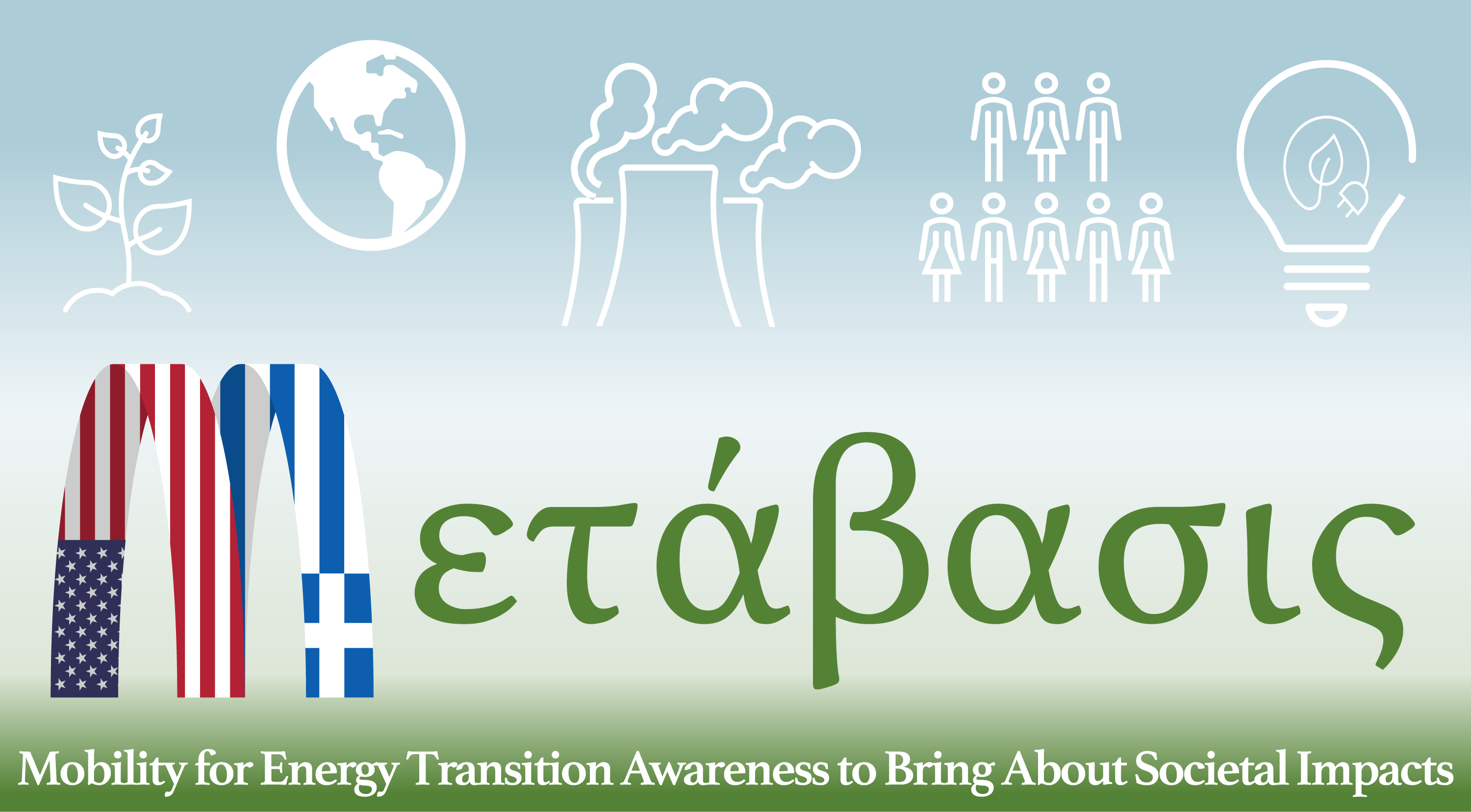
Learn more about the Texas A&M Energy Institute’s METAVASIS program:
- News Articles
- Events
